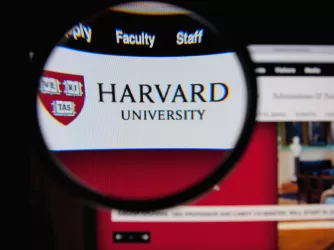Table of Contents
University of Michigan Student Assembly Does the Right Thing, Scraps Proposal to Lower Standard of Evidence
Last week, I blogged about the fact that Tulane University is on the verge of lowering the standard of evidence in student disciplinary matters from one of "clear and convincing evidence" to a "preponderance of the evidence." I discussed, as we have before on The Torch, why adopting the "preponderance" standard was a bad idea and would shortchange students' due process rights. I was therefore dismayed to learn earlier this week that my alma mater, the University of Michigan, was contemplating adopting the same standard for its own student judiciary affairs. Thankfully, it now appears that Michigan has reversed course after some discussion and debate on campus.
According to a December 7 article in the Michigan Daily, among the more contentious proposed amendments to the Statement of Student Rights and Responsibilities submitted this fall was a proposal to lower the standard of evidence in campus hearings to a "preponderance of the evidence." University policy allows the Michigan Student Assembly (MSA), the Senate Advisory Committee on University Affairs (SACUA, the university faculty's leading governing body), and university executive officers to submit proposed amendments to the Statement every three years. In this case, the proposal to lower the standard of evidence was endorsed by MSA. The Daily summarizes Vice President for Student Affairs E. Royster Harper's take on the proposal as follows:
Harper said the "hottest item" right now is a proposal to lower the standard of evidence needed to find a student responsible for a policy violation. The change calls for a move from a "clear and convincing" standard to a "preponderance of evidence" standard.
Under the proposal, preponderance of evidence is defined as the "amount of evidence that makes it more likely than not that the facts demonstrate a violation of college policy." The University's current standard requires the reviewer of a case to be confident that a violation occurred.
[...]
Harper said concerns about the change primarily focused on sexual assault cases.
Thankfully, the story gets better from there. The Daily notes that the proposal met with resistance this week when it was presented before SACUA (SACUA can recommend an amendment approved by MSA before it goes to UM President Mary Sue Coleman. However, with or without SACUA's recommendation for implementation, such an amendment would be sent to President Coleman). And as the Daily reported on Wednesday, the Michigan Student Assembly subsequently voted to retract its endorsement of the amendment to lower the standard of evidence:
MSA had previously endorsed an amendment to the student code that would lower the standard of evidence needed in a case brought against a student through the Office of Student Conflict Resolution.
But more debate on the topic - prompted by concern expressed by members of the Senate Advisory Committee on University Affairs - brought forth an opinion among some members that the original recommendation was made with mostly sexual assault victims in mind, and that the lower standard might not be appropriate for other types of complaints.
[...]
LSA Rep. Vickie Hwang, who co-authored the original recommendation along with LSA Rep. Adam DeSantis, said the idea was to increase the likelihood of a victim of sexual assault coming forward.
I am heartened to see MSA reverse course on this issue. As I argued last week, the "preponderance" standard, by merely requiring a finding of a 51 percent chance that an accused student committed the offense alleged, places too low of a burden of proof on the university to demonstrate that the offense was committed. It also fails to adequately protect students' rights and interests in disciplinary matters, which are more akin to criminal than civil matters. Campus hearings very often involve serious charges with serious consequences, both for students' academic careers and standing with the university as well as for their professional careers. As such, the "clear and convincing evidence" standard, which requires a university to prove that it was substantially more likely than not that a student committed an alleged offense, is more appropriate for campus hearings. By implementing the "preponderance" standard in its student judiciary matters, the University of Michigan would have shortchanged its students' due process rights. Additionally, the preponderance standard would have invited selective application of university policy and unfair treatment of certain individuals and groups, as the lesser standard would allow administrators to more easily manipulate the hearing process to go after students for unsound reasons. I commend the members of both SACUA and MSA who recognized these problems.
At the same time, there are reasons to be concerned about these developments. It is troubling that MSA representatives thought the amendment was a good idea in the first place. How they did not see the problem in reducing the standard of evidence to such a low bar is beyond me. Did no one think to consider the implications and possibilities brought on by this drastic change? It is a good thing that members of SACUA weighed in with their well-founded concerns and halted the amendment in its tracks.
Moreover, the rationale of lowering the standard of evidence in order to better address sexual assault on campus is troubling as well. First, if the goal is to lessen the burden of proof in sexual assault cases, why make that change applicable to student cases across the board? That doesn't serve the given purpose, but rather shortchanges students' due process in all other cases without taking into account the consequences of doing so. Second, if the given purpose is to prioritize one kind of allegation over others, why would it be right to single out sexual assault for a different evidence standard over other kinds of serious allegations?
Third, the statement by one of the MSA representatives that "the idea was to increase the likelihood of a victim of sexual assault coming forward" makes little sense. I fail to see the correlation between lowering the burden of proof for a particular offense and the willingness of alleged victims of that offense to come forward. Sexual assault is a serious matter, to be sure, and it should be treated as such. But the proposed measure would do little to make alleged victims more likely to report the incident or to ultimately reduce the number of sexual assaults perpetrated on campus. Victims of sexual assault certainly sometimes fail to come forward due to fear, shame, or other reasons, but it is highly questionable whether many more would come forward because the case is more "winnable" or because the university faces a lesser burden of proof.
Finally, even if the lesser evidentiary standard did induce more victims to come forward, the proffered rationale overlooks the need to provide adequate due process to accused students in cases of such magnitude. Sexual assault is one of the more serious allegations that one can face on a college campus, and the consequences of a finding of guilt can be devastating to a student's academic and professional career. Given the unclear fact patterns that are often involved in such cases and the "he said, she said" nature of many such allegations, it is dangerous to allow these cases to be adjudicated under a "more likely than not" standard of evidence. Considering the consequences that can follow from a finding of guilt, the fact finder in a campus hearing for sexual assault needs to be more sure that the alleged offense in fact was committed, not less.
Put more simply, the Michigan Daily says that "[t]he University's current standard requires the reviewer of a case to be confident that a violation occurred." Why would any student wish to live under a regime in which such confidence in judicial proceedings is not required?
It is good to know that Michigan will not be reducing the standard of evidence in its campus judiciary affairs. Students' due process rights will be better off for it.
Recent Articles
FIRE’s award-winning Newsdesk covers the free speech news you need to stay informed.

Revoking Harvard’s tax-exempt status will threaten all nonprofits

Grandpa’s advice for the new wave of American censors

FIRE POLL: Only 1/4 of Americans support deporting foreigners for pro-Palestinian views
